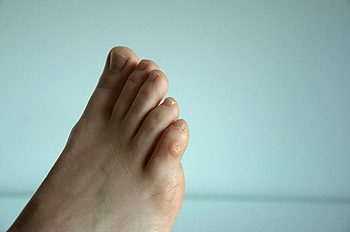

Corns are a condition of the feet that is primarily defined by hard layers of skin that develop in response to friction. Corns, importantly, are distinct from calluses. Many patients and novices to the field of podiatry often wonder where, exactly, corns can develop on the feet. The answer is slightly complicated. Corns are most commonly located on the soles, or bottoms, of the feet. However, they can also be found elsewhere on the feet. For example, corns can also be found on bony parts of the foot. This is to say that corns can be located on the toes, especially around the joints. You might also be most susceptible to developing corns wherever the skin is particularly thin. If you are someone that is concerned about developing corns on your feet, it is suggested that you contact a podiatrist today for more information. Schedule an appointment today.
If you have any concerns regarding your feet and ankles, contact the podiatrists of The Foot & Ankle Center of New Jersey. Our doctors will treat your foot and ankle needs.
Corns: What Are They? and How Do You Get Rid of Them?
Corns can be described as areas of the skin that have thickened to the point of becoming painful or irritating. They are often layers and layers of the skin that have become dry and rough, and are normally smaller than calluses.
Ways to Prevent Corns
There are many ways to get rid of painful corns such as wearing:
Treating Corns
Treatment of corns involves removing the dead skin that has built up in the specific area of the foot. Consult with Our doctors to determine the best treatment option for your case of corns.
If you have any questions please feel free to contact our office located in Paramus, NJ . We offer the newest diagnostic and treatment technologies for all your foot and ankle needs.